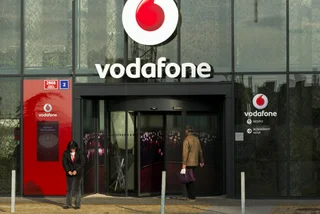INTERNATIONAL BUSINESS 💼
Ukrainian firm eyes Czechia expansion| Ukrainian delivery and logistics company Nova Pošta aims to open branches in major Czech cities in the second quarter of 2023, Interfax-Ukraine reported last Friday. This would make the postage of items to and from Ukraine simpler and likely cheaper, the company says. Nova Pošta delivers items Europe-wide, and has already opened over a dozen branches in neighboring Poland. It also plans to launch in Germany and Romania.
PARTNER ARTICLE
Czech investment in Germany| Reuters reports that Czech-based investment company PPF has acquired a 9 percent stake in a large German media company, ProSiebensat.1. The firm owns many high-profile digital properties in Germany, and runs popular channels such as Kabel Eins and ProSieben. Former Italian Prime Minister Silvio Berlusconi is the biggest shareholder in the German media firm.
READ ALSO:
WINNERS AND LOSERS 📊
Mobile cell-ebration| The Czech division of phone operator T-Mobile increased its (pre-tax) profit by 2.3 percent, to CZK 12.35 billion, in 2022. According to the company’s press release, sales increased to CZK 30 billion. Customer numbers also rose; over 6 million people in Czechia now use the company’s services. T-Mobile has the highest amount of customers out of all other mobile operators in the country.
A small win for Czech consumers| Prague’s main electricity company Pražská plynárenská will reduce the prices of its gas and electricity below the government’s price ceiling from May, it announced last week on its website. The current government price cap is CZK 6,050 for one megawatt hour (MWh) of electricity and CZK 3,025 for one MWh of gas. The average household in an apartment on the "D02 tariff" and with a consumption rate of 2.8 MWh should save approximately CZK 760 per year.
CURRENCY 💱
Dollar strengthens, but crown holds firm| Despite the recent strengthening of the U.S. dollar, the Czech crown has remained relatively unaffected, despite a small depreciation. At the beginning of Febuary, the crown traded at CZK 21.6: USD 1, and has since weakened to CZK 22.33. It is also still at near all-time highs against the euro. Financial site Roklen24.cz writes of a new term coined by investors internationally – “higher for longer” – which assumes that interest rates will remain elevated for longer than expected; until inflation subsides. The high U.S. interest rates may prompt an inflow of foreign capital into the country, which could further strength the dollar.
Stronger in Ukraine, weaker in Russia|One year on from Russia’s widescale invasion of Ukraine, the Czech crown has strengthened significantly against the hryvnia and fallen against the Russian ruble. The crown has strengthened by almost 20 percent against the Ukrainian currency and in turn weakened against the ruble by 12 percent. The Czech crown’s appreciation versus the hryvnia is due to uncertainty surrounding the Ukrainian economy, promoting a massive sell-off of the currency.
INDUSTRY 🏢
Wheels turning slowly|Despite a recent report from accounting firm PwC that the number of electric and hybrid cars globally will more than double in the next five years, it is unlikely that the Czech electric-vehicle market will shift significantly. ČTK reports that the Czech market lags significantly behind Europe in terms of electric car sales due to limited public interest. As of July 2022, there were approximately 11,000 electric vehicles registered in the Czech Republic, equivalent to just 0.1 percent of all vehicles in the country.
Mixed public feelings on Czech economy |Confidence in the Czech economy (or the economic sentiment indicator) fell to 91.7 points in February, from 92 points in the previous month, according to the Czech Statistical Office (CZSO). This was caused by a decline in entrepreneurs’ confidence – particularly in trade and industry. On the other hand, consumer confidence has risen to its highest level in the past year. According to CZSO figures, the number of consumers expecting a worsening of their financial situation in the next 12 months has significantly decreased month on month.
SEED REPORT 🌱
Czechia, the start-up hub| A new study has found that the Czech Republic is the best country in Europe to launch a start-up. A site that helps entrepreneurs create business names took into account several variables for its calculations, such as countries’ business tax rate, their cost of startup procedures, and monthly cost of living. Czechia’s relatively low business tax rate of 19 percent and monthly cost of living – cheaper than its West European counterparts – helped give it a high score. Finland and Sweden occupied the second and third sports respectively.
Ukrainian start-up attracts Czech and global attention| Czech investors – along with tech giants Uber and Stripe – are keenly investing in Ukrainian startup Finmap, CzechCrunch writes. The young enterprise, which serves as a cashflow management tool for businesses, recently announced that it raised over CZK 24 million in a crowdfunding campaign. Presto Ventures, a Czech investment firm, is one of the main backers. The app, which integrates more than 2,800 different payment services (including Revolut, Wise and PayPal), has tripled its number of foreign customers.












 Reading time: 4 minutes
Reading time: 4 minutes 






























